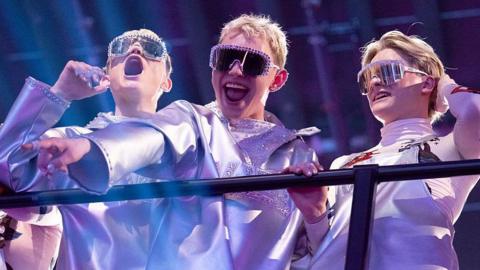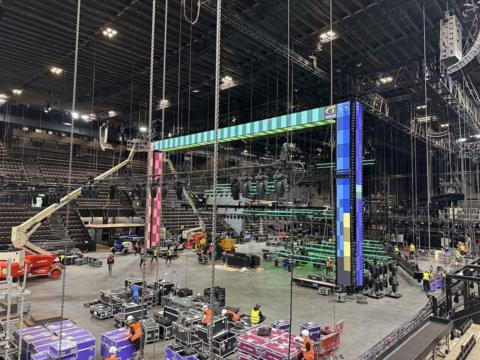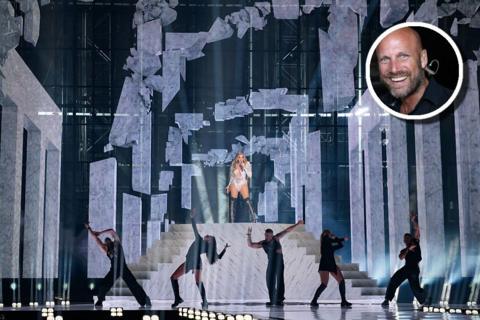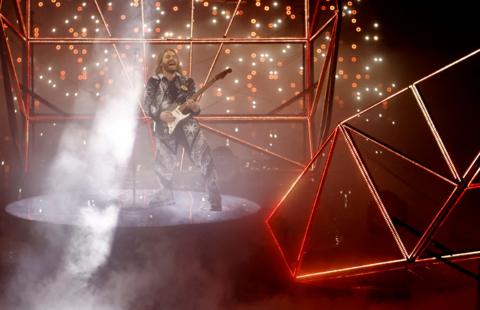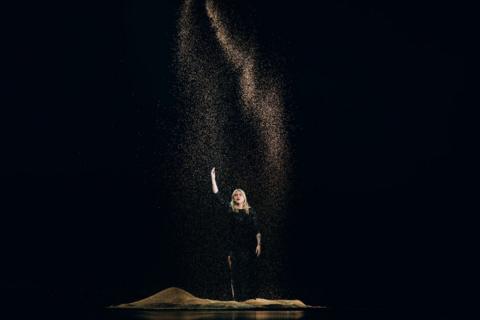The stage crew start rehearsing their "F1 tyre change" weeks before the contestants even arrive.
Every country sends detailed plans of their staging, and Eurovision hires stand-ins to play the acts (in Liverpool 2023, it was pupils from the local performing arts school), while stagehands start shaving precious seconds off the changeovers.
"We have about two weeks," says Van Rouwendaal, who's normally based in Utrecht but is in Basel for this year's contest.
"My company is around 13 Dutchies and 30 local guys and girls, who rock it in Switzerland.
"In those two weeks, I have to figure out who's right for each job. Someone's good at running, someone's good at lifting, someone's good at organising the backstage area. It is a bit like being good at Tetris because you have to line everything up in a small space, in the perfect way."
As soon as a song finishes, the team are ready to roll.
As well as the stagehands, there are people responsible for positioning lights and setting pyrotechnics; and 10 cleaners who sweep the stage with mops and vacuum cleaners between every performance.
"My cleaners are just as important as the stage crew. You need a clean stage for the dancers - but also, if there's an overhead shot of somebody lying down, you don't want to see shoeprints on the floor."
The attention to detail is clinical. Backstage, every performer has their own microphone stand, set to the correct height and angle, to make sure every performance is camera perfect.
"Sometimes the delegation will say the artist wants to wear a different shoe for the grand final," says Van Rouwendaal. "But if that happens, the mic stand is at the wrong height, so we've got a problem!"
